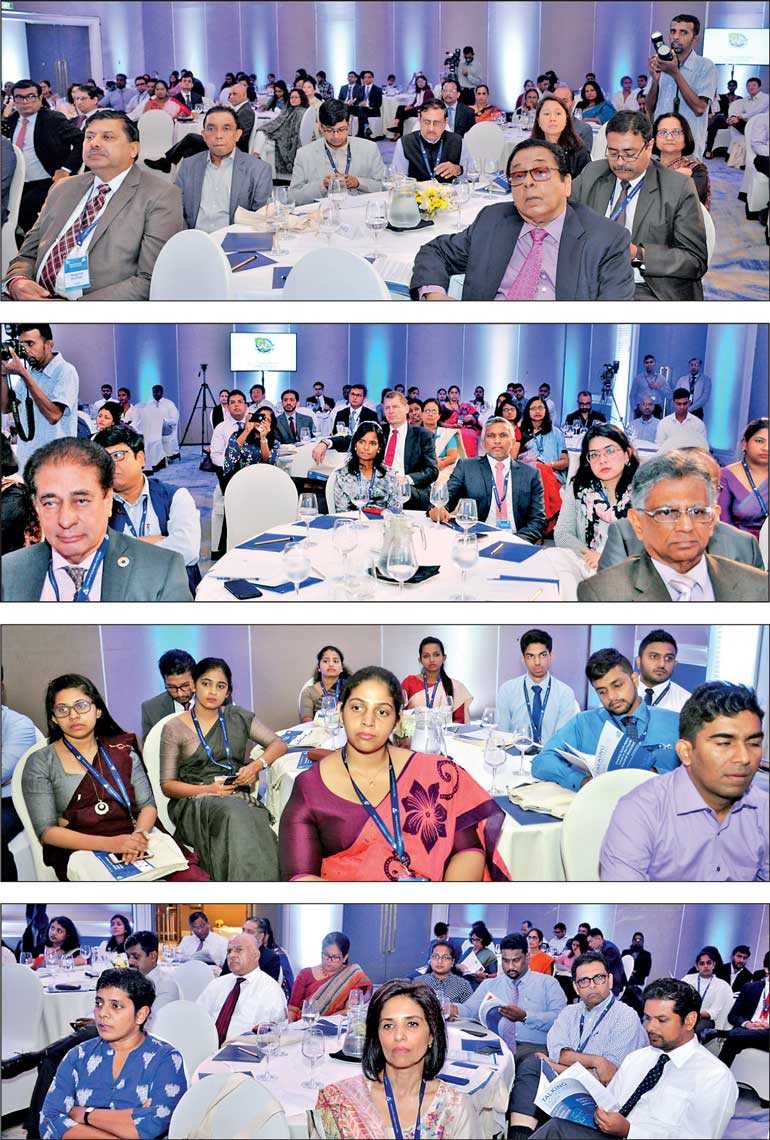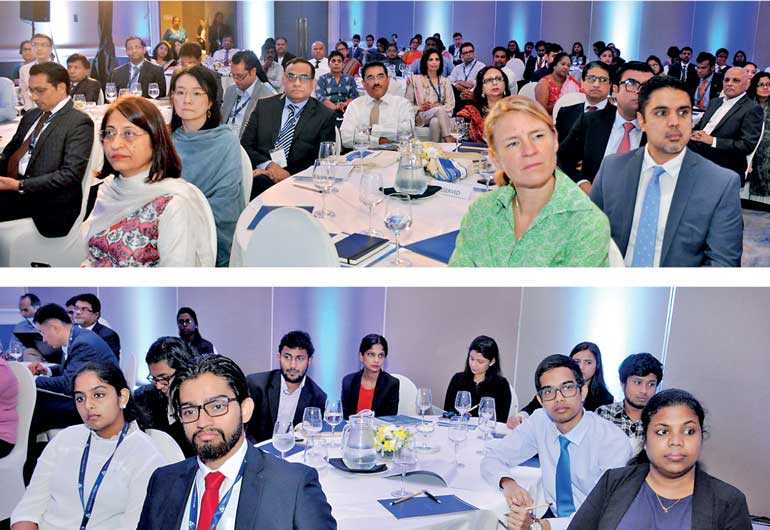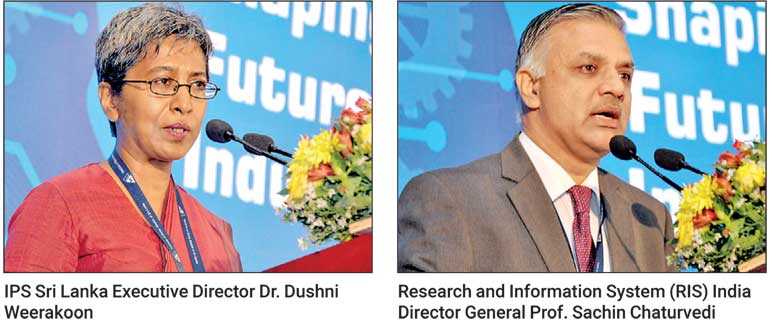Thursday Feb 19, 2026
Thursday Feb 19, 2026
Friday, 27 September 2019 00:00 - - {{hitsCtrl.values.hits}}




By Charumini de Silva
The 12th South Asian Economic Summit (SAES) yesterday outlined the need to understand what the intersection of technology, economics, culture and politics means in shaping the region’s collective future for the Fourth Industrial Revolution.
The two-day SAES XII, organised by the Institute of Policy Studies (IPS) of Sri Lanka and themed ’Shaping South Asia’s Future for Fourth Industrial Revolution (4IR)’, kicked off yesterday at the Colombo Hilton, and aims to uncover the prospects and challenges for South Asia in harnessing the 4IR.
It also aims to discover potential avenues for cooperation through a multi-stakeholder dialogue, on how the region can constructively shape its future to improve the well-being of its people, individually and collectively.
Addressing the inauguration, IPS Executive Director Dr. Dushni Weerakoon said the outlook to reform the region’s issues collectively has come to a grinding halt, and highlighted the urgency of finding policy solutions for emerging issues, and bringing them to the attention of regional political leaders.
”We still continue to face longstanding issues in public finance, investments, public service, healthcare, education and crucially in rising income inequality in most of our countries. Added to this, we are also facing heightened global volatility and shifting geopolitical risks, which can continue to undermine the somewhat modest global recovery seen in the last couple of years. However, the outlook to reforms in the Southern Asian region is rather dim and has come to a grinding halt,” she added.
Given the widening inequalities, with some getting high-quality and high-paying jobs, Dr. Weerakoon said it was important to understand the digital revolution, to ensure more inclusive growth prospects in South Asia, with safety nets and more efficient delivery of public services to allow the region to reach its Sustainable Development Goals (SDGs) more swiftly and with better overall outcomes.
Noting that South Asia has a large educated labour force, and young people well-connected to the technological economics of the rest of the world, she said it was critical that the region takes measures not to fall behind in the 4IR.
Dr. Weerakoon said growth in unemployment, low female labour force participation, and inadequate skills, are some of the most prominent concerns across countries in the region.
She also said that IPS has looked at 4IR and how it could help to drive Sri Lanka’s growth.
Research and Information System (RIS) India Director General Prof. Sachin Chaturvedi said the region was running into global geopolitical issues, with trade tensions between the US and China.
He said growth projections for the region was still over 6% for 2019 and 2020, and private sector players were leading job creation.
Prof. Chaturvedi said it was important to look at how regulatory architecture can help South Asian countries to leap forward in the 4IR.
Centre of Policy Dialogue (CPD) Bangladesh Fellow Prof. Mustafizur Rahman said while the SAARC political will had waned, the regional thinkers and academics who believed in the original vision should not give up.
“I think that vision is something which still drives us. I think we have to be prepared with a policy agenda and recommendations when political leaders are ready,” he added.
He also cautioned of the risk of missing the 4IR if the leadership in the region does not act on the rising income inequality and gender barriers.
Sustainable Development Policy Institute (SDP) Pakistan Executive Director Dr. Abid Qaiyum Suleri pointed out the need to come up with strategies to deal with cybersecurity and data privacy, as it moves toward the 4IR. He noted that the effects of climate change were expected much later, but that it has already hit the world, and warned that by the time the region is ready, the 4IR will already be here, urging leaders in the region to be prepared before it is too late.
- Pix by Lasantha Kumara